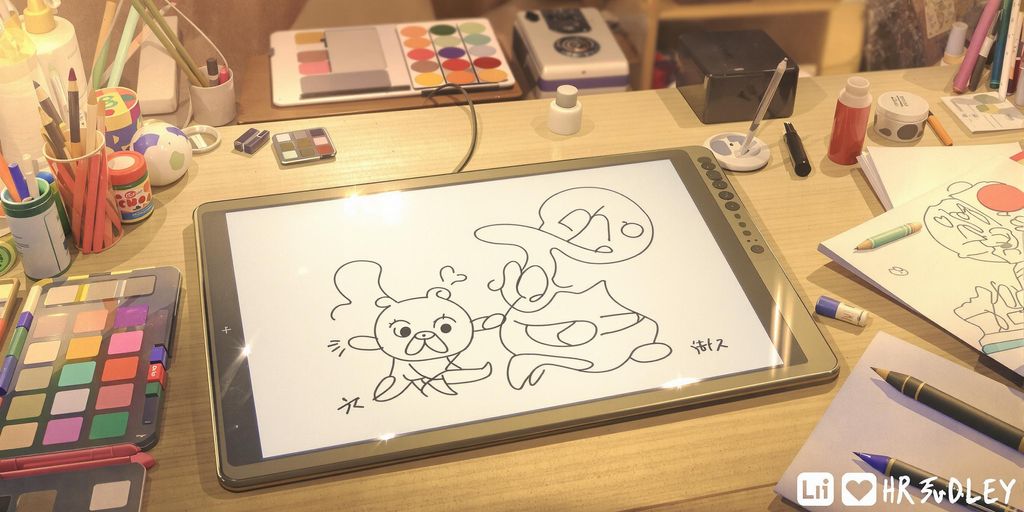Public libraries process over 2.1 billion transactions annually across the U.S., creating urgent demand for organized professionals. While many assume these roles require advanced degrees, most positions prioritize practical skills over formal education. This shift makes 2025 an ideal time to enter the field – if you understand the new rules.
Modern candidates must blend traditional organizational abilities with tech literacy. Duties now include managing digital archives, troubleshooting e-resource access, and using automated circulation systems. For example, career path details show growing emphasis on database management and user support software.
This guide reveals proven methods to showcase your qualifications effectively. You’ll learn to highlight transferable skills like customer service and inventory management that administrators value most. We’ll also explore how platforms like RoboApply’s resume tools simplify creating application materials that pass automated screening systems.
Key Takeaways
- 2025 hiring trends favor candidates who combine physical resource management with digital literacy
- Entry requirements focus more on demonstrable skills than academic credentials
- Automated application systems require strategic keyword optimization
- Modern libraries seek problem-solvers comfortable with both books and byte-sized solutions
- Positioning yourself as a tech-adaptable candidate increases interview opportunities
Understanding the Role of a Library Assistant
Behind every organized shelf lies the meticulous work of dedicated professionals. Library assistants form the operational backbone of modern information hubs, balancing public service with technical precision. Their core responsibilities span managing checkouts, maintaining collections, and guiding users through physical and digital resources.
Frontline interactions define much of this position. You’ll greet visitors, resolve account issues, and answer basic research queries. Many facilities report that assistants handle over 70% of direct patron communication, from locating materials to explaining borrowing policies. This requires equal parts problem-solving skills and patience.
Collaboration drives daily operations. Teams coordinate to process new acquisitions, update catalog entries, and troubleshoot equipment. As noted in library aide responsibilities, cross-departmental communication ensures smooth transitions between public services and administrative tasks.
Behind-the-scenes work proves equally vital. Shelving accuracy impacts material retrieval times, while proper labeling prevents circulation errors. You might reorganize periodicals one hour and assist with interlibrary loans the next. This duality keeps the role dynamic and essential.
Modern libraries demand adaptability across formats. Assistants now curate e-book collections, manage online reservation systems, and guide users through databases. This blend of traditional and digital skills positions you as a critical access point for community knowledge.
Recognizing these multifaceted duties helps you identify transferable experiences. Whether you’ve managed retail inventory or supported customer inquiries, tailored resume templates can reframe your background to match library priorities.
Essential Qualifications for Library Assistants
Breaking into library work requires meeting baseline standards while showcasing potential. Most positions start with a high school diploma or GED – 82% of public libraries list this as their minimum requirement. This accessibility makes library roles ideal for recent graduates, career changers, and those seeking part-time work.

Some institutions prefer candidates with post-secondary education. An associate degree in library science or completed coursework in information management strengthens applications. These programs teach cataloging systems and research methodologies – skills directly applicable to daily tasks outlined in library career paths.
Three key qualities outweigh formal credentials:
- Intellectual curiosity demonstrated through reading habits or self-directed learning
- Technical proficiency with library databases and office software
- Interpersonal skills for assisting diverse patron groups
Specialized environments like law or medical libraries often require subject-specific knowledge. A community college history buff might thrive in a municipal archive, while academic facilities may prefer candidates with undergraduate coursework.
When preparing application materials through platforms like automated career tools, emphasize transferable skills from retail, education, or customer service roles. Library administrators value practical problem-solving abilities more than perfect academic records.
Effective Strategies for how to land a library assistant job in 2025
2025’s competitive hiring landscape demands focused preparation. Start by mapping local opportunities – public branches, academic collections, and specialty archives each require distinct approaches. Identify institutions matching your interests through municipal websites and library consortium directories.
Prioritize organizations offering training programs if you lack direct experience. Many libraries prefer teaching their specific systems to enthusiastic learners over seasoned candidates. Emphasize adaptability in applications, citing examples like mastering new software in previous roles.
Three critical steps strengthen your candidacy:
- Customize application materials for each library’s mission statement
- Showcase tech proficiency with common platforms like LibGuides or Koha
- Reference volunteer work demonstrating community engagement
Build connections through local library events and state associations. These interactions often reveal unadvertised openings. Pair networking efforts with professional cover letter templates that highlight organizational abilities from retail or office roles.
Combine digital and in-person applications for maximum reach. Check municipal portals weekly while introducing yourself to branch managers. This dual approach proves particularly effective in smaller library systems valuing personal initiative.
Building a Strong Educational Foundation for Library Careers

Education forms the cornerstone of any successful career path. While many entry-level roles only require a high school diploma, specialized programs can boost your competitiveness. Start by analyzing job postings in your target area – urban systems often value formal training more than rural libraries.
Consider library science certificates or associate degree options at community colleges. These courses teach cataloging standards and digital resource management. For example, Los Angeles City College’s Library Information Technology program combines hands-on training with internship opportunities.
Online learning platforms make education accessible while working. Many institutions offer accelerated courses in collection development and archival practices. Pair these with volunteer work to demonstrate practical application of classroom concepts.
Use tools like career trackers to monitor evolving requirements across different library types. This helps prioritize relevant certifications without overinvesting in unnecessary credentials.
When listing ongoing studies on applications, emphasize skills gained rather than degrees earned. A statement like “Completed 15 credit hours in information organization systems” shows proactive growth. Balance coursework with customer service experience – both prove equally valuable during hiring reviews.
Gaining Relevant Experience in Libraries
Building practical expertise positions you for success in library roles. Many institutions value hands-on work over formal credentials, creating multiple pathways to develop necessary skills.
Internships and On-the-Job Training
Start by exploring structured programs through library career trackers. For example, a Chicago Public Library internship trains individuals in digital cataloging and patron services. If formal options are limited, propose shadowing opportunities – 43% of library managers create roles for enthusiastic learners.
Volunteer Opportunities in Libraries
Local branches often need help with literacy programs or archive digitization. Document tasks like inventory management or event coordination to showcase later. One volunteer upgraded children’s programming attendance by 30% through creative outreach – a standout achievement for applications.
When recording experience, focus on measurable outcomes rather than duties. Track software proficiency gains or patron interactions handled. As one hiring manager notes: “We prioritize candidates who demonstrate adaptability across physical and digital systems.”
Strengthen applications by aligning volunteer roles with target positions. Use skills-based resume formats to highlight relevant capabilities, whether from paid roles or community service.
Mastering Key Organizational and Communication Skills

Success in library roles hinges on balancing precision with people skills. Develop strong organizational habits through color-coded labeling systems and digital tracking tools. These methods help manage rotating book displays, event materials, and equipment reservations without missing deadlines.
Active listening transforms patron interactions. Practice repeating requests verbatim before answering – “You need articles about local history from 1990-2000?” This technique builds trust while clarifying needs. Pair verbal clarity with approachable body language for optimal communication.
Demonstrate organizational capabilities through measurable achievements. Did you streamline filing processes at a previous job? Use resume-building tools to showcase specific outcomes like “Reduced document retrieval time by 40%.” Quantifiable examples prove efficiency.
Patience becomes crucial when assisting tech-resistant visitors. Create step-by-step guides for common tasks like ebook downloads. One library saw 62% fewer tech support requests after implementing visual tutorials staff could share during interactions.
Written communication matters as much as verbal exchanges. Draft concise email templates for overdue notices or program reminders. Maintain consistent formatting in internal reports to help colleagues quickly locate key data points.
When challenges arise, apply the “3F method”: Facts, Feelings, Fix. Acknowledge the patron’s perspective (“I understand this late fee is frustrating”), state library policies clearly, then offer solutions. This approach resolves conflicts while upholding professional standards.
Crafting an Effective Resume with RoboApply
Your application materials need to bridge traditional competencies with modern tech demands. RoboApply’s entry-level resume templates simplify this process through intelligent automation. These tools transform scattered experiences into cohesive narratives that resonate with hiring committees.
Utilizing the AI Resume and Cover Letter Builder
RoboApply’s AI analyzes your background to emphasize transferable abilities. It suggests action verbs like “curated” or “cataloged” for volunteer roles involving material organization. The system automatically formats sections to highlight customer service expertise or tech literacy – critical for modern library environments.
Optimizing with the ATS Optimizer
Over 78% of institutions use applicant tracking systems. RoboApply scans job descriptions to identify keywords like “database management” or “patron support.” It then adjusts your resume’s language to match these terms while maintaining natural phrasing. This ensures your qualifications survive initial automated screenings.
Input part-time roles or community service to generate achievement-focused bullet points. For example: “Managed 200+ monthly book returns using integrated circulation software.” Pair these with tailored cover letters that reference specific library values from their mission statements.
These AI-powered tools create polished documents in minutes, letting you focus on interview preparation. A strong resume isn’t just about past work – it’s about framing your potential as a resourceful candidate ready to adapt.
FAQ
What education is required to become a library assistant?
A high school diploma is the minimum requirement, but many employers prefer candidates with an associate degree or coursework in library science, information management, or a related field. Some roles may require a bachelor’s degree for advanced responsibilities like managing library collections or leading programs.
Can I work as a library assistant without prior library experience?
Yes. Volunteer roles, internships, or part-time roles in schools or community libraries provide hands-on experience with library materials and operations. Highlight transferable skills like customer service, organization, or familiarity with digital resources in your application.
What skills do employers prioritize for library assistant roles?
Strong organizational skills for managing library collections, communication skills for assisting patrons, and basic tech proficiency for cataloging materials are critical. Familiarity with reference services, database systems, and resource development can also strengthen your candidacy.
How does an associate degree compare to a bachelor’s degree for this career path?
An associate degree in library science or a related field often qualifies you for entry-level roles, while a bachelor’s degree may open doors to specialized tasks like program development or supervisory positions. Both paths emphasize practical training in library operations and resource management.
What tools can help optimize my resume for library assistant jobs?
RoboApply’s AI Resume Builder tailors your resume to highlight relevant skills like cataloging, patron support, or event coordination. Use the ATS Optimizer to include keywords like “library materials,” “reference services,” or “resource management” for better visibility in applicant tracking systems.
Are there professional development opportunities for library assistants?
Yes. Many libraries offer training in database systems, children’s programs, or digital resource management. Certifications like the Library Support Staff Certification (LSSC) or workshops on emerging technologies can enhance your qualifications for advancement.


















